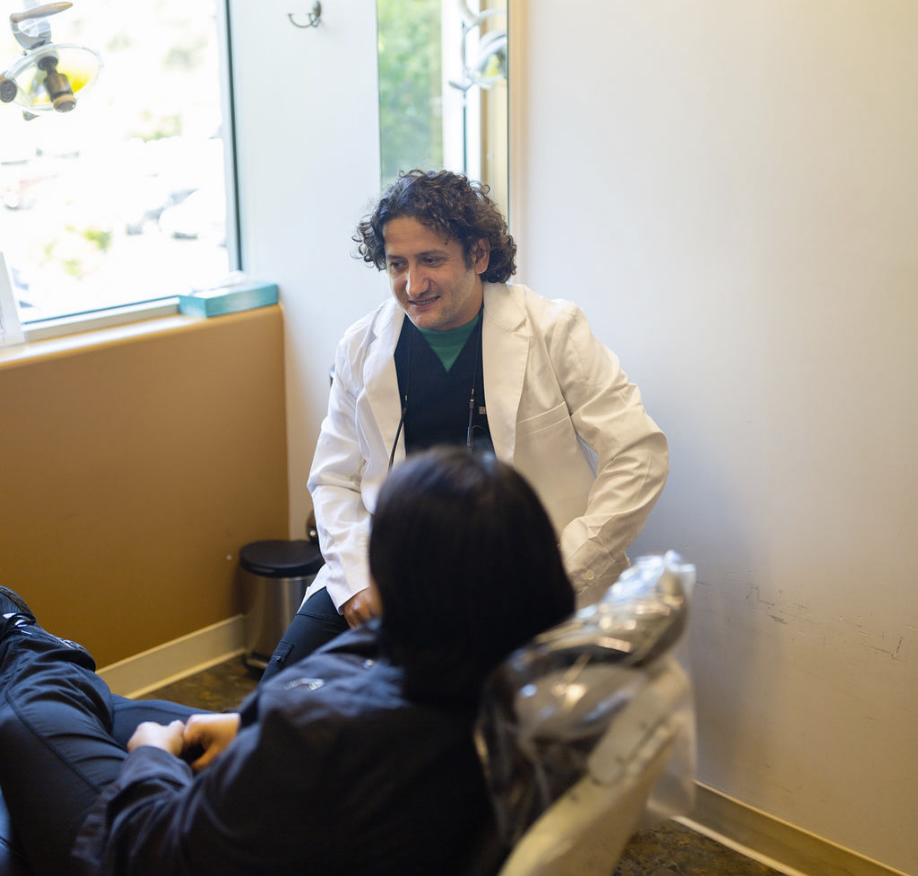According to the American Dental Association (ADA), you should schedule your child’s first appointment between the arrival of the first tooth and their first birthday. If possible, try to schedule the appointment during the morning, when children tend to be rested and cooperative. The first appointment is usually short and involves little to no treatment. Most of the time, Dr. Hakam Al-Samarrai performs a simple exam to ensure there are no problems with your child’s existing teeth. If we notice any symptoms of decay, we may recommend a quick dental cleaning with our dental hygienist. We will also educate you on the oral health care basics for infants and children. After their first appointment, you should schedule a checkup every six months, so we can monitor the development of the teeth, and prevent potential complications.
Dentistry For Kids
Valencia, CA

Your Child's First Visit
According to the American Dental Association (ADA), you should schedule your child’s first appointment between the arrival of the first tooth and their first birthday. If possible, try to schedule the appointment during the morning, when children tend to be rested and cooperative. The first appointment is usually short and involves little to no treatment. Most of the time, Dr. Hakam Al-Samarrai performs a simple exam to ensure there are no problems with your child’s existing teeth. If we notice any symptoms of decay, we may recommend a quick dental cleaning with our dental hygienist. We will also educate you on the oral health care basics for infants and children. After their first appointment, you should schedule a checkup every six months, so we can monitor the development of the teeth, and prevent potential complications.
The Importance of Good Oral Hygiene for Kids
Your child’s primary (baby) teeth can affect the future of their smile. Our job is to help them establish a strong oral health foundation that follows them into adulthood. Their primary teeth serve as placeholders for their permanent ones. If a primary tooth is lost prematurely, the remaining teeth may shift out of their proper position. This can lead to eruption problems with permanent teeth. Permanent teeth usually erupt between the ages of six and 12.
It is important to make sure your child has a proper oral hygiene routine, as children are particularly susceptible to tooth decay. Be sure they are brushing their teeth at least twice a day, especially after meals and before bed. They should also floss their teeth once a day to remove excess food debris and plaque.
Diet and nutrition can also affect your child’s oral health. The harmful bacteria in plaque love to feed on sugars and other simple carbohydrates. Be sure to limit your child’s exposure to sugary snacks and drinks. If they do need a snack, fruits and vegetables are a healthy alternative to chips, cookies, and candies.
Fluoride Treatment and Dental Sealants
During your child’s routine appointment we typically recommend a fluoride treatment, especially if they are at a greater risk for tooth decay. Fluoride treatment deposits minerals back into the enamel, strengthening it against acid attacks from bacteria. In some cases, fluoride treatment can even reverse microscopic instances of decay. Fluoride comes in several forms, including gels, foams, rinses, and varnishes. Talk with Dr. Hakam Al-Samarrai to learn more about your child’s fluoride options. Once the permanent molars and premolars erupt, we may also recommend dental sealants. These teeth have deep grooves and fissures that are hard to clean, particularly for children. A dental sealant is placed on the occlusal (biting) surface to protect the tooth and allow for easier brushing.

